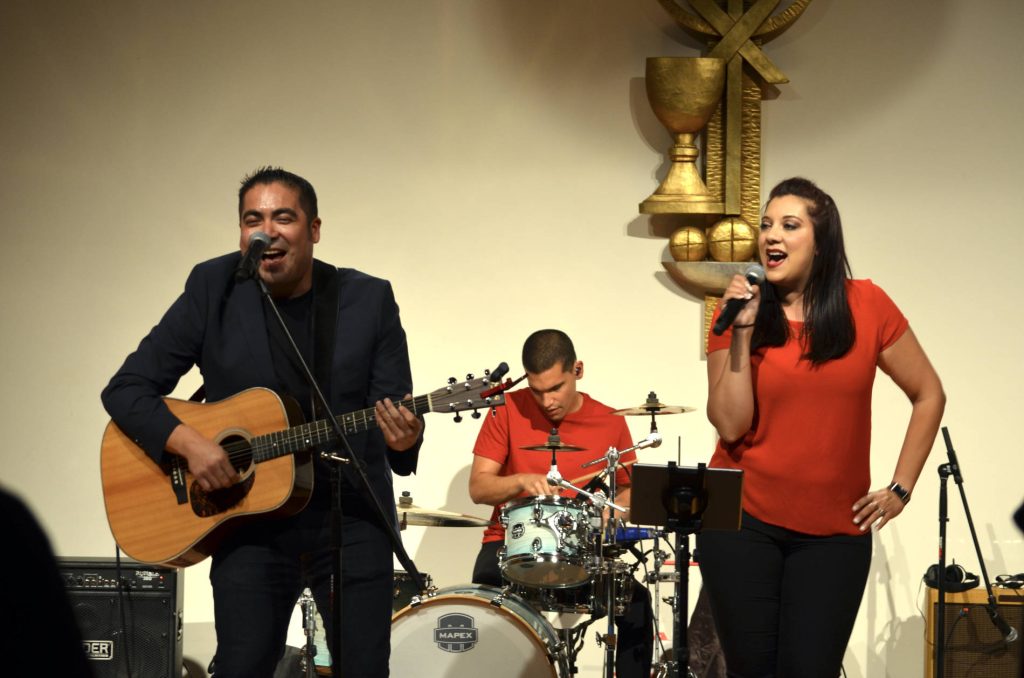SAN DIEGO — The president of the Catholic Family Life Association acknowledged that contemporary families are facing many challenges.
The trends that Socorro Truchan has seen nationwide include many young people choosing not to marry, children being raised by grandparents instead of parents, and modern technology like cell phones supplanting conversations at the family table.
“As (the) family goes, so does society,” said Truchan, who also serves as associate director, Domestic Church (Marriage and Family) in the Diocese of Kalamazoo, Michigan. “And we need to get back to putting the family, as the domestic Church, at the center of what we do as ministers.”
She was in San Diego for the Catholic Family Life Association’s annual conference, which drew ministers in the subject area from across the nation.
Truchan described the conference as a place where family life ministers can “share … what we’ve all been experiencing” and learn best practices that they can put into action in their own dioceses.
As residents of the host city, representatives of the San Diego Diocese had much to contribute to the discussion.
The conference was held Sept. 25 to 27 at the Sheraton Mission Valley San Diego Hotel, where participants listened to keynote presentations, attended breakout sessions, came together for Mass and communal prayer, and toured an exhibit hall.
Keynote speakers included Dr. Maureen Day, associate professor of religion and society at the San Diego-based Franciscan School of Theology; Father Jaroslaw Szymczak, co-originator of “Love & Life Programs,” which are focused on developing strong marital relationships; and Bishop Jaime Soto, of Sacramento, who spoke about Radiate Love, an initiative of the California bishops to celebrate the beauty of marriage and family.
The conference concluded with a Mass celebrated by Auxiliary Bishop Felipe Pulido of San Diego.
Among the nine breakout sessions offered on the second day of the conference were two presented by the leadership of the Diocese of San Diego’s Office for Family Life and Spirituality.
Janelle Peregoy, associate director for separated and divorced ministry, led a breakout titled “Our Lady, Undoer of Knots: Lessons of Love from Separated & Divorced Families. It looked at the impact of separation and divorce on families and how parishes can help them.
The office’s director, John Prust, later co-presented a panel discussion on mental health ministry. He was joined by Dr. Wendell Callahan, executive director of the Catholic Institute of Mental Health Ministry at the University of San Diego; Laurie Dusa, volunteer coordinator of the mental health ministry team at Our Lady of Mt. Carmel Parish in Rancho Peñasquitos; and Dr. Margery Arnold, a counseling psychologist who formerly served as mental health ministry coordinator in the Diocese of Orange.
Prust shared that the diocese has a Mental Health Ministry Network that consists of active parish-level ministries at one-quarter of the nearly 100 parishes in the diocese.
He said that the goals of mental health ministry include reducing the stigma surrounding mental illness, providing accompaniment, and providing referrals to community resources.
Though some members of mental health ministry teams may be therapists in their professional lives, they do not provide any treatment in their ministerial capacity, and most team members simply bring lived experience and a heart to serve.
The panelists reflected on why it’s fitting for the Church to engage in this ministry.
“This is what Catholics do,” said Dr. Arnold. “We pray with each other. We take care of each other.”
On the conference’s last day, Prust participated in a panel discussion on the marriage catechumenate along with Christi Sollenberger, marriage and family life coordinator at St. Mary Parish in Escondido, and Carla Ferrando-Bowling, family life director for the Diocese of Green Bay, Wisconsin. The discussion was moderated by Kathy Schmugge, who will succeed Truchan as president of the Catholic Family Life Association in late 2025.
The marriage catechumenate is an approach to marriage preparation and enrichment that pairs engaged and newly married couples with mentor couples from their own parish. The process takes inspiration from the Order of Christian Initiation for Adults (OCIA), in which catechumens are accompanied by sponsors as they learn about the faith and prepare to become Catholic.
Prust recounted how the San Diego Diocese introduced the marriage catechumenate in the wake of a diocesan synod on the family, which was held in late 2016.
“There was a sense that marriage prep in our diocese (was) very centralized,” he said, “so every couple was going to the same retreat and they had the same process.”
But, he added, priests and deacons were reporting that, while the programming itself was fine, they weren’t seeing the couples back at Mass.
The search for a different approach led the diocese to Witness to Love, a marriage preparation process that embraces the catechumenal model.
Prust said that the “secret sauce” of Witness to Love, what gives it “heart” and makes it “powerful,” is the component of engaged couples’ choosing a mentor couple.
He said that about 35 parishes in the diocese are currently using Witness to Love.
“We have a ways to go,” he said. “We have a lot of parishes that still haven’t fully grasped this momentous paradigm shift into treating marriage prep” as “discipleship formation.”
At the same time, he said, there is no desire to re-centralize marriage preparation at the diocesan level.
“We wanted to allow room for innovation,” he said. “We wanted parishes to feel like they could try new things without being in a straitjacket. We wanted to empower … priests, and deacons, and other lay leaders.”
“If they’re doing something that’s really beautiful, in the spirit of the marriage catechumenate,” he said, “we want to … encourage them, ‘Keep going. You’re on the right track, and the rest of us can learn from you.’”









